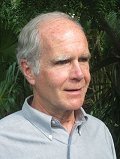On this call, Dr. Ted Schettler discussed The Ecology of Breast Cancer: Opportunities for Prevention. Breast cancers are a mixture of different kinds of tumors that become apparent at various ages and differ considerably in their natural history. In addition to a number of generally well-accepted risk factors for breast cancer, ongoing research continues to reveal others that seem likely to be involved. Collectively, various combinations of risk factors create conditions in which the disease becomes more or less likely in individuals and populations. A life course approach is also essential to understanding windows of vulnerability and the importance of early life exposures in shaping breast cancer risk. In this presentation, Ted Schettler used an ecologic framework to organize the complex mixture of variables from social, biologic, physical/chemical, and behavioral domains that influence breast cancer risk, over a lifetime. He discussed opportunities for prevention based on the strength of evidence, potential risks, and benefits of interventions.
Featured Presenter
 Ted Schettler, MD, MPH is Science Director of the Science and Environmental Health Network. He also serves as CHE's Science Director and as a science advisor to the Health Care Without Harm campaign. He has a medical degree from Case Western Reserve University and a Masters in Public Health from Harvard University. Dr. Schettler is the author of “The Ecology of Breast Cancer: The promise of prevention and the hope for healing” and co-author of “Generations at Risk: Reproductive Health and the Environment”; “In Harm's Way: Toxic Threats to Child Development”; and "Environmental Threats to Healthy Aging.” He has published a number of articles on related topics in peer-reviewed journals and has served on advisory committees of the US EPA and the National Academy of Sciences.
Ted Schettler, MD, MPH is Science Director of the Science and Environmental Health Network. He also serves as CHE's Science Director and as a science advisor to the Health Care Without Harm campaign. He has a medical degree from Case Western Reserve University and a Masters in Public Health from Harvard University. Dr. Schettler is the author of “The Ecology of Breast Cancer: The promise of prevention and the hope for healing” and co-author of “Generations at Risk: Reproductive Health and the Environment”; “In Harm's Way: Toxic Threats to Child Development”; and "Environmental Threats to Healthy Aging.” He has published a number of articles on related topics in peer-reviewed journals and has served on advisory committees of the US EPA and the National Academy of Sciences.
This call was hosted by the CHE Alaska working group. It was 1 hour long and recorded.
